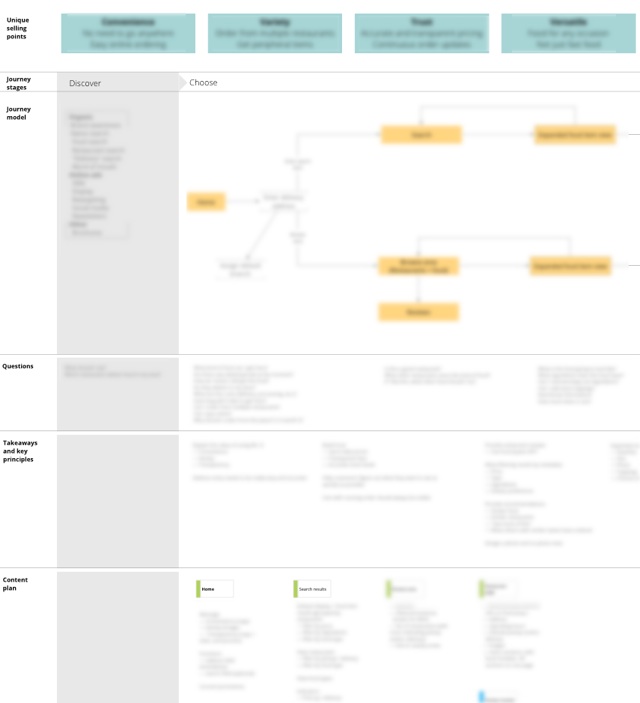About a year ago Cennydd Bowles wrote a very good article called A changing tide, in which he thought out loud about the trend of high-profile agency designers joining internal product teams. One of his hypotheses was this:
A great agency is still a strong asset to the industry and its clients, just as a bad agency is still harmful – and there are undoubtedly counter-examples to my evidence. However, one thing is clear: the design industry’s focus is no longer on agencies. It is on products.
He goes further to conclude:
A lot’s been written about the alleged decline of client services, and plenty of people are now rushing to its defence. As always, “it depends” is the only reliable answer; context is the key factor in deciding whether to work for, or hire, external consultants. But I do wonder how the agency world will respond to this shifting community focus. How will they manage to stay an attractive option for designers and organisations who are increasingly internally-focused?
My reason for bringing this up is not to re-ignite the debate over the value of client services. I’ve worked on both sides of the fence. I’m currently on the agency side, but I don’t think I’ll do that for the rest of my career. I think agency-side and product-side design roles stretch one’s skills in different ways, so there’s huge value in both. There are also big downsides to each, of course (for example, product-side can become monotonous, while agency-side can become frustrating when work doesn’t go live).
What I’d like to talk about, instead, is why it suddenly feels like some product-side designers look down on agency designers, as if we’re the body boarders to their cool surfer personas. Here’s David Cole in The Rise of Product Design:
Increasingly the best designers of our time are not working for agencies, but for in-house teams at startups and tech companies. I think this is an important shift, not just for where the work is done, but how the work is done.
Looking back at the ideas espoused by the UX community, I find their relevance to my work winnowing by the year. Many of the practices seem forged in the fires of consultancy.
And here’s Tuhin Kumar in What kind of a designer are you?:
It is not the biggest surprise that some of the finest designers of products happen to work at tech companies and startups. I would argue that a startup or a larger tech company that cares deeply about design (I can definitely attest for Facebook being one) is a better place to bootstrap your career in design than any traditional design agency. There are lot of reasons for this but the biggest and most obvious ones in my head are the breadth of projects and the quick learning curve.
That last sentence is a head-scratcher. I don’t see how one can argue that a designer at an agency doesn’t get much variety. I come from an e-commerce background, but through my agency work I’ve had the privilege of gaining experience in financial services, mobile technologies, and a wide range of consumer products. Plenty of breadth there.
But again, that’s a side note. What I’m confused about is the tone. The subtext that agency designers are not the “best” or “finest” designers. I keep coming back to Cennydd’s article from a year ago, because I think he’s right: there’s been a shift from agency to products. That’s fine (I’ll say it again: I love the product-side and will probably end up there again some day). But we need to be careful about downplaying the role of agencies, and how agencies work.
The other subtext in all these recent posts is that deliverables are for amateurs — real designers create prototypes and ship products. That is absolutely true, and if you’ve found a company like that, more power to you. But it is simply not how the world works for everyone. I’ve said this before, but to make a blanket statement that deliverables are unnecessary ignores the mountain of organizational challenges that need to be overcome in some companies to build useful, usable products. And sure, I’m defending the agency side forcefully here, but I guarantee you that without real deliverables, we wouldn’t get anywhere in some organizations.
Does it make our role less desirable that we have to spend a bit of extra time on “non-design” activities? To those who have found their homes in design-centered companies, yes, definitely. But does it make us second-class citizens in the industry? Yeah, I don’t think so. I’m going to throw it out there that without agencies, we wouldn’t have been in a situation where tons of companies now get the value of design, and therefore fork out tons of cash to make sure they have kick-ass internal design teams. And it’s a pretty awesome feeling when you see that shift happening in an organization, knowing that you’ve had some small hand in it.
So all I’m saying is let’s recognize the inherent value in both sides of the industry, because we all have the same goal: to create great products that delight users and make businesses successful. We’re all in this together.


